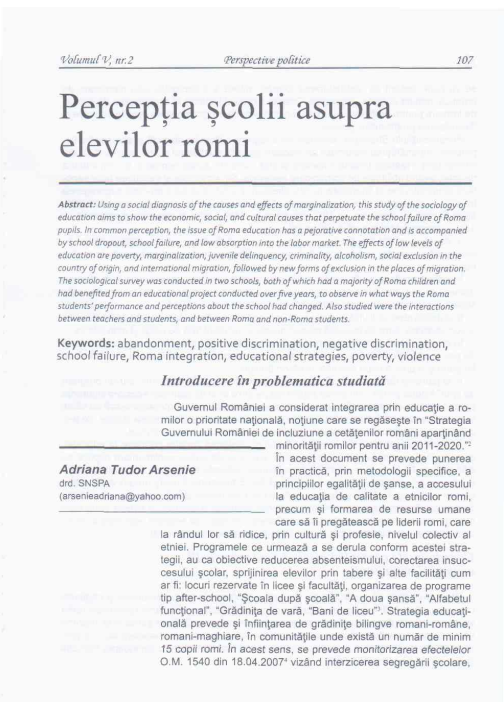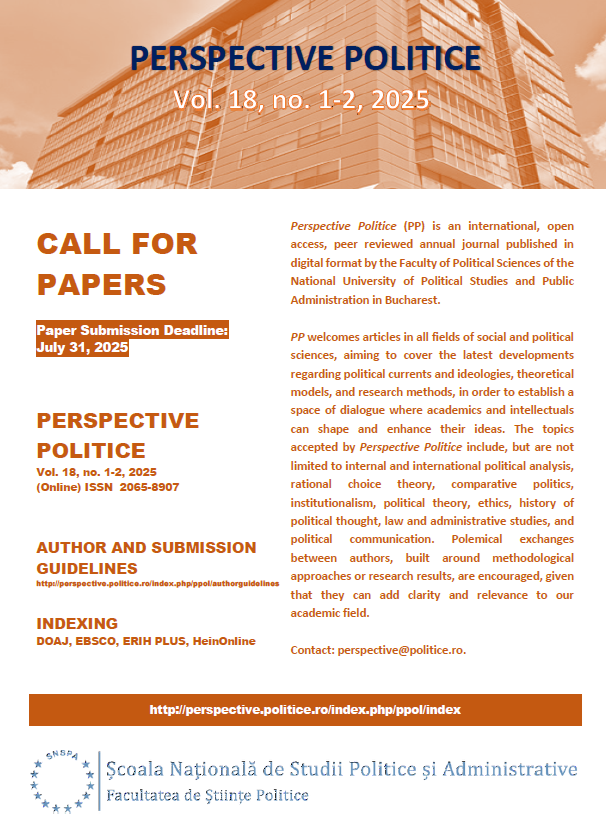Perceptia scolii asupra elevilor romi
Abstract
Using a social diagnosis of the causes and effects of marginalization, this study of the sociology of education aims to show the economy, social, and cultural causes that perpetuate the school failure of Roma pupils. In common perceptions the issue of Roma education has a pejorative connotation and is accompanied by school dropout. school failure, and low absorption into the labor market. The effects of low levels of education are poverty, marginalization, juvenile deliquency, criminality, alcoholism, social exclusion in the country of origin, and international migration, followed by new forms of exclusion in the places of migration. The socioiogical survey was conducted in two schools, both of which had a majority of Roma children and had benefited from an educational project conducted over five years, to observe in what ways the Roma students' performance and perceptions about the school had changed. Also studied were the interactions between teachers and students, and between Roma and non-Roma students.




